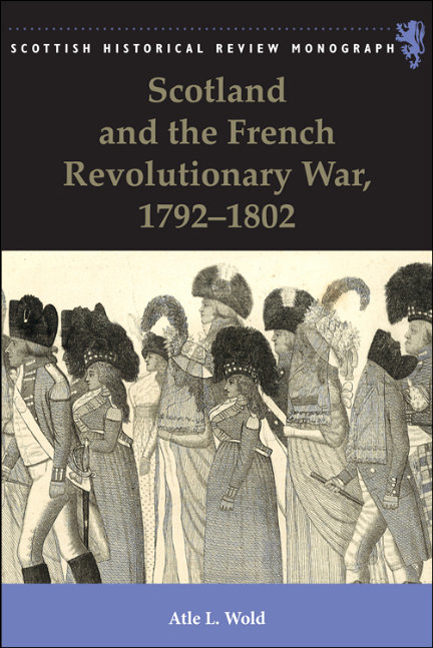1 - The Government of Scotland in the 1790s
Published online by Cambridge University Press: 20 December 2017
Summary
In the 1790s the British state arguably faced a crisis of unprecedented proportions. Not only was the British government fighting a war, which – for most of the decade – went badly for Britain, but the authorities also had to deal with a challenge to the political regime on the domestic front in the shape of political radicalism and popular disturbances. The perception among the authorities that Britain had an ‘enemy in the back’ so to speak, capable, perhaps, of fomenting revolution at home, at the same time as the state was involved in a desperate struggle with France, came to place its clear mark on the way the country was governed. Opposition to the political system and demands for reform were, of course, nothing new in Britain by the 1790s, nor were popular disturbances related to political issues. What was new, however, was the influence from abroad in the shape of French revolutionary principles. Nowhere was this more apparent than in Scotland where the sudden upsurge of popular disturbances in the troubled year of 1792 bore all the hallmarks of being inspired by revolutionary ideas, and by recent events in France. This influence of French principles was clearly present during the arguably most serious disturbances in Scotland in 1792: the King's Birthday riot in Edinburgh – which took place over three days beginning on 4 June (the King's Birthday), and during which the target of the crowds’ discontent was unmistakeably the leading Scottish politician Henry Dundas and other figures of authority in Edinburgh – and the riots in Perth and Dundee in the autumn, which became particularly serious after news of the French military victory at Jemappes on 6 November had arrived in Scotland. Both in Perth and Dundee, the crowds planted socalled ‘trees of liberty’, a symbol of the famous revolutionary principles of ‘liberty, equality, and fraternity’. The influence from France also played an important role in the emergence of new politically radical societies in Scotland, of which the more prominent one was the Scottish Friends of the People. And while popular disturbances with a political intent caused grave concern among the authorities, they were no less alarmed by the more peaceful activities of societies such as the Friends of the People.
- Type
- Chapter
- Information
- Scotland and the French Revolutionary War, 1792–1802 , pp. 7 - 37Publisher: Edinburgh University PressPrint publication year: 2015



